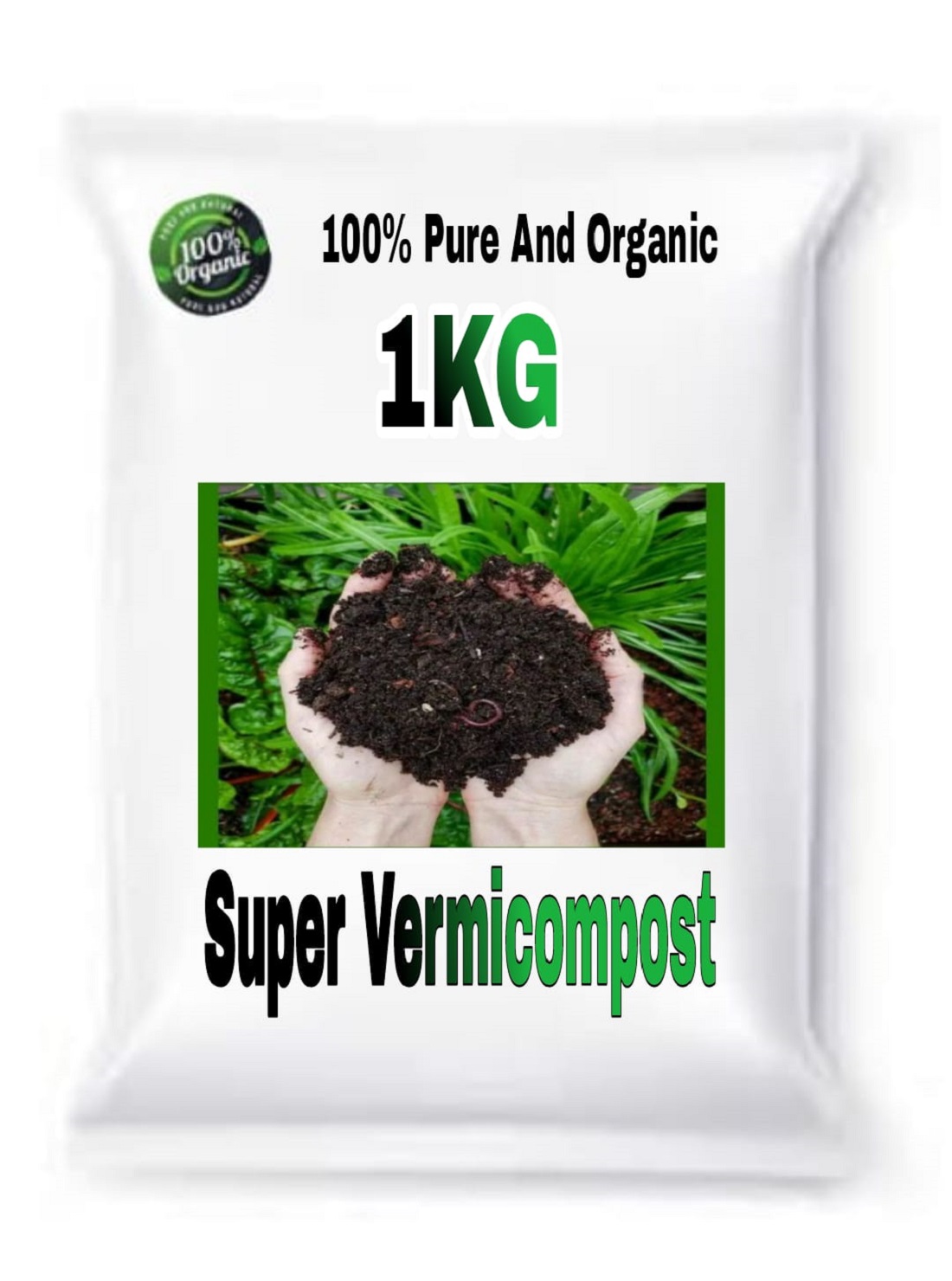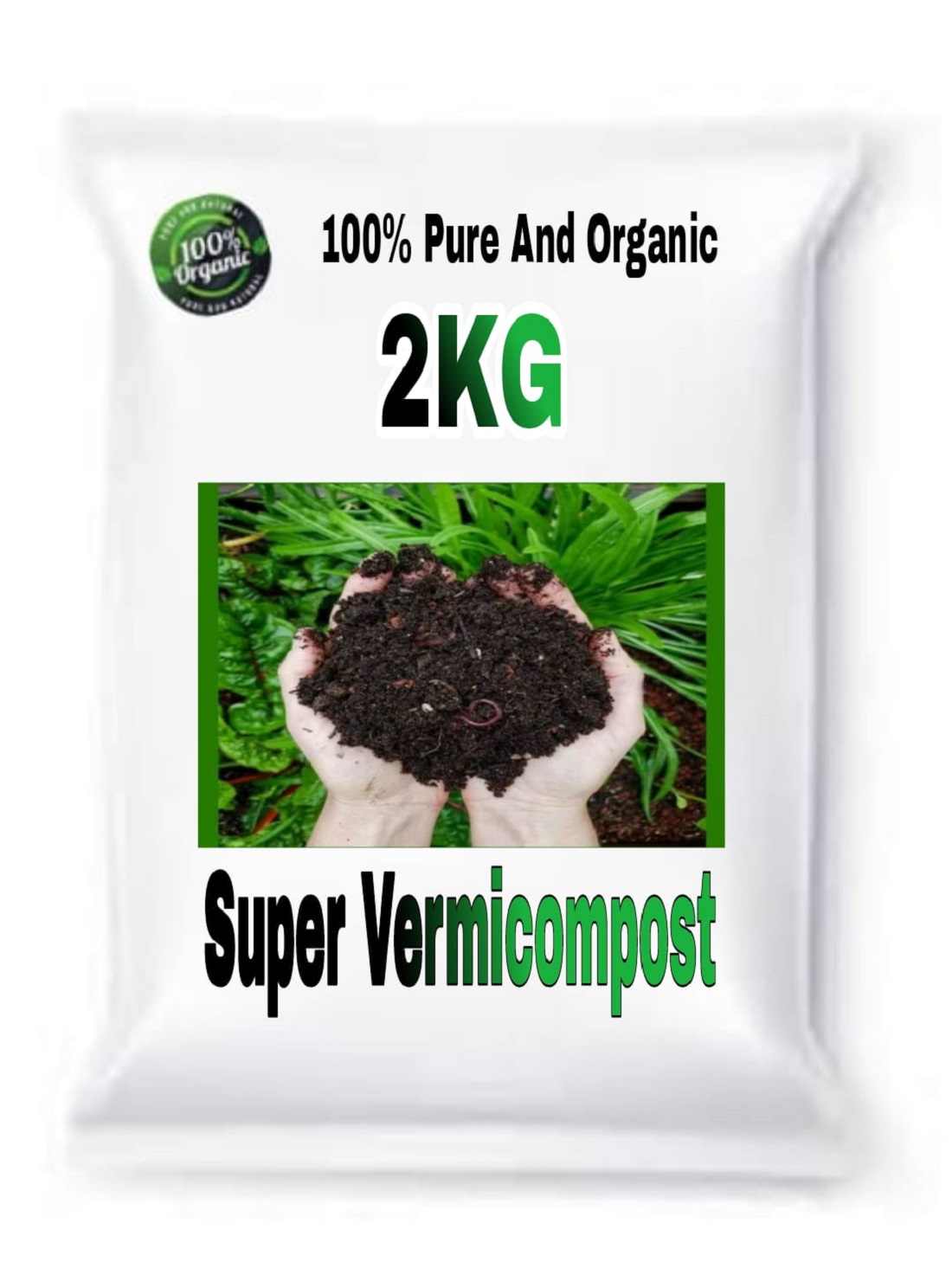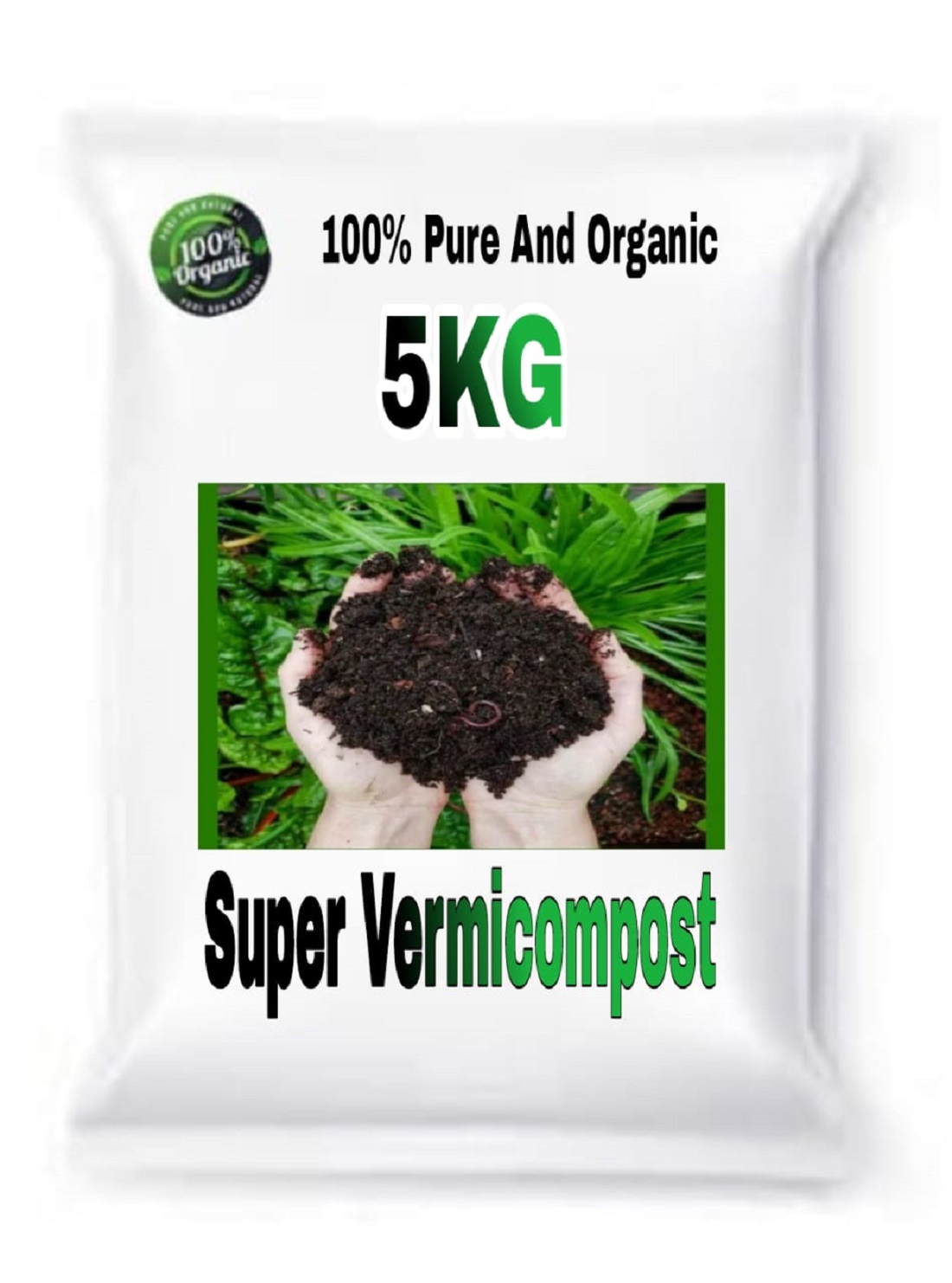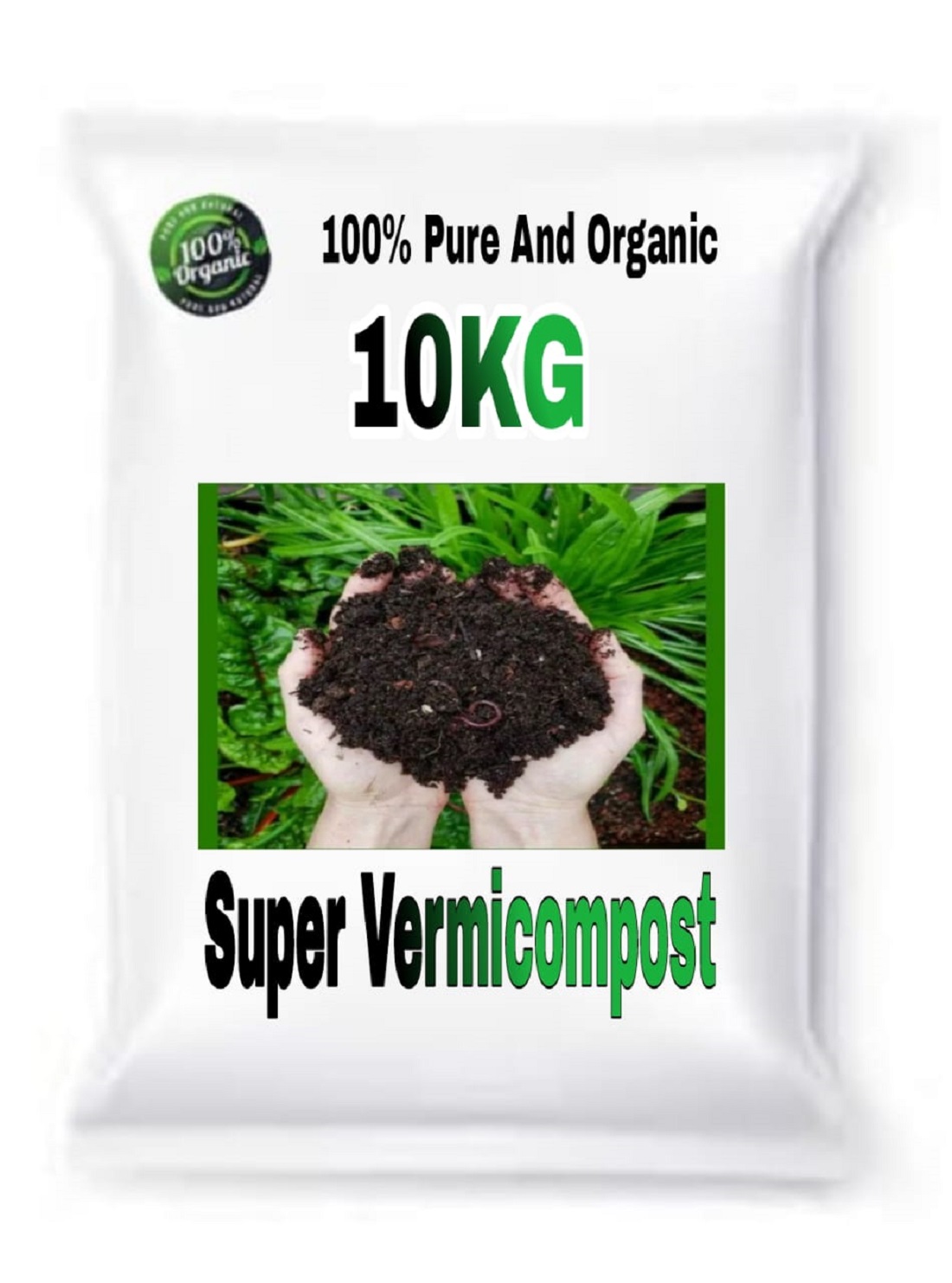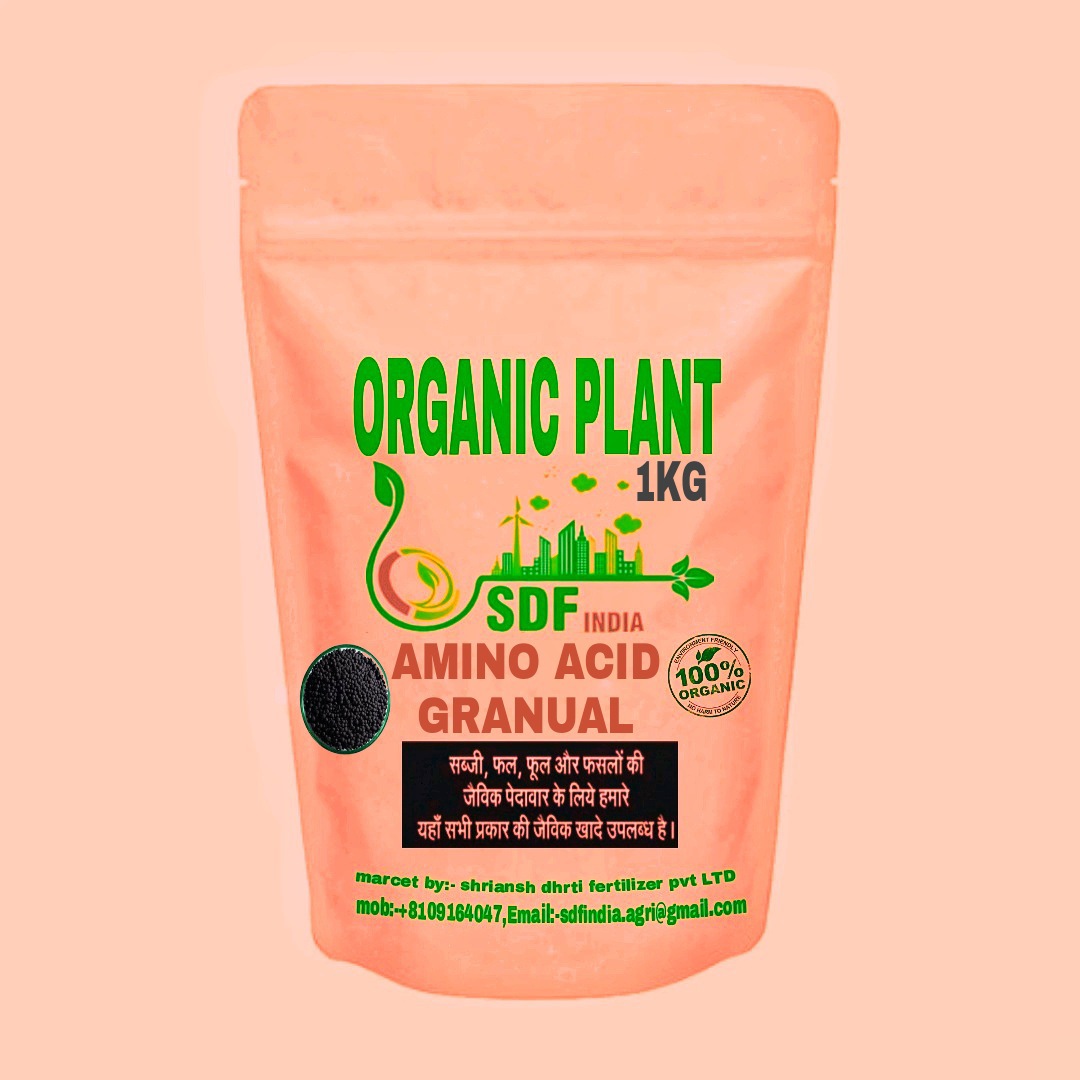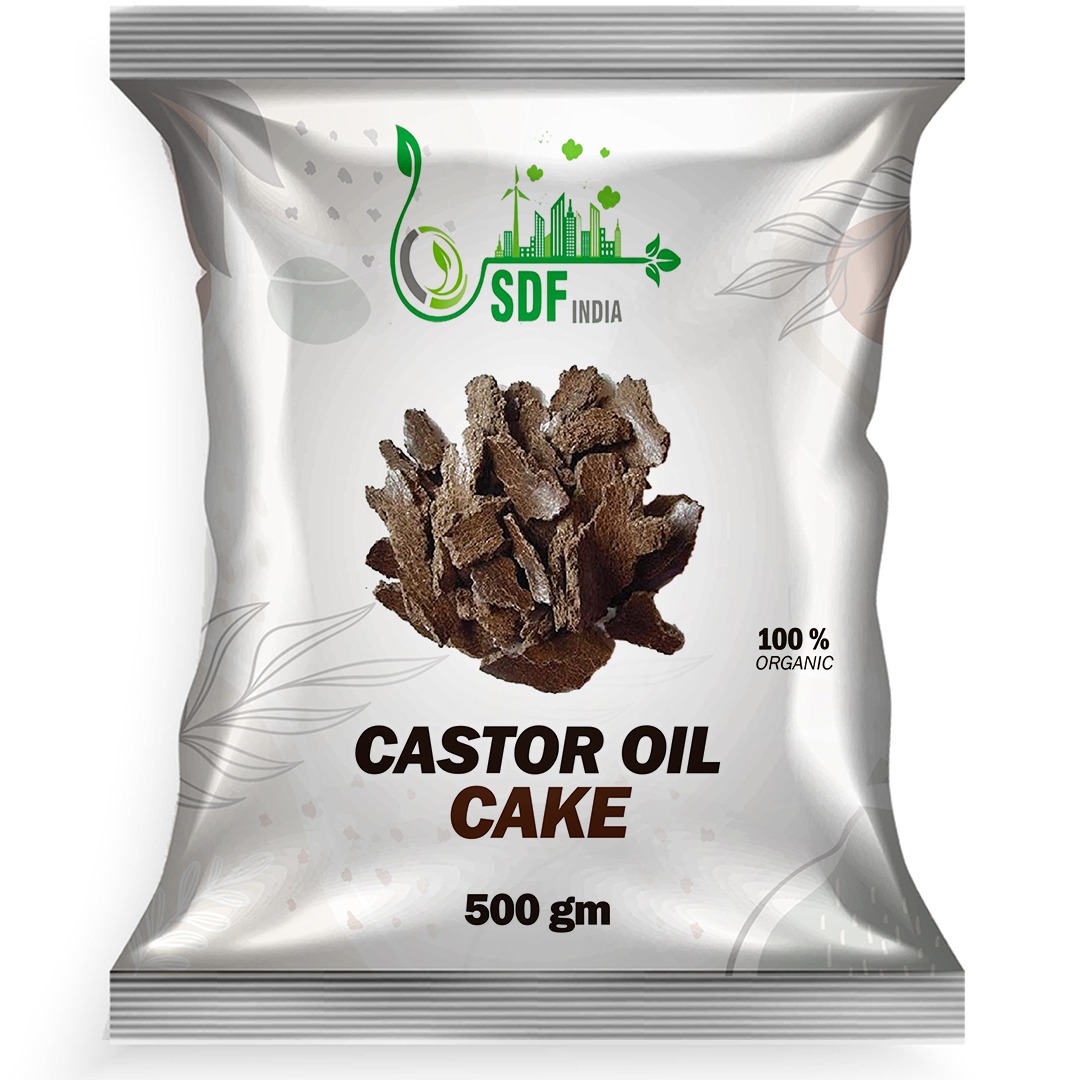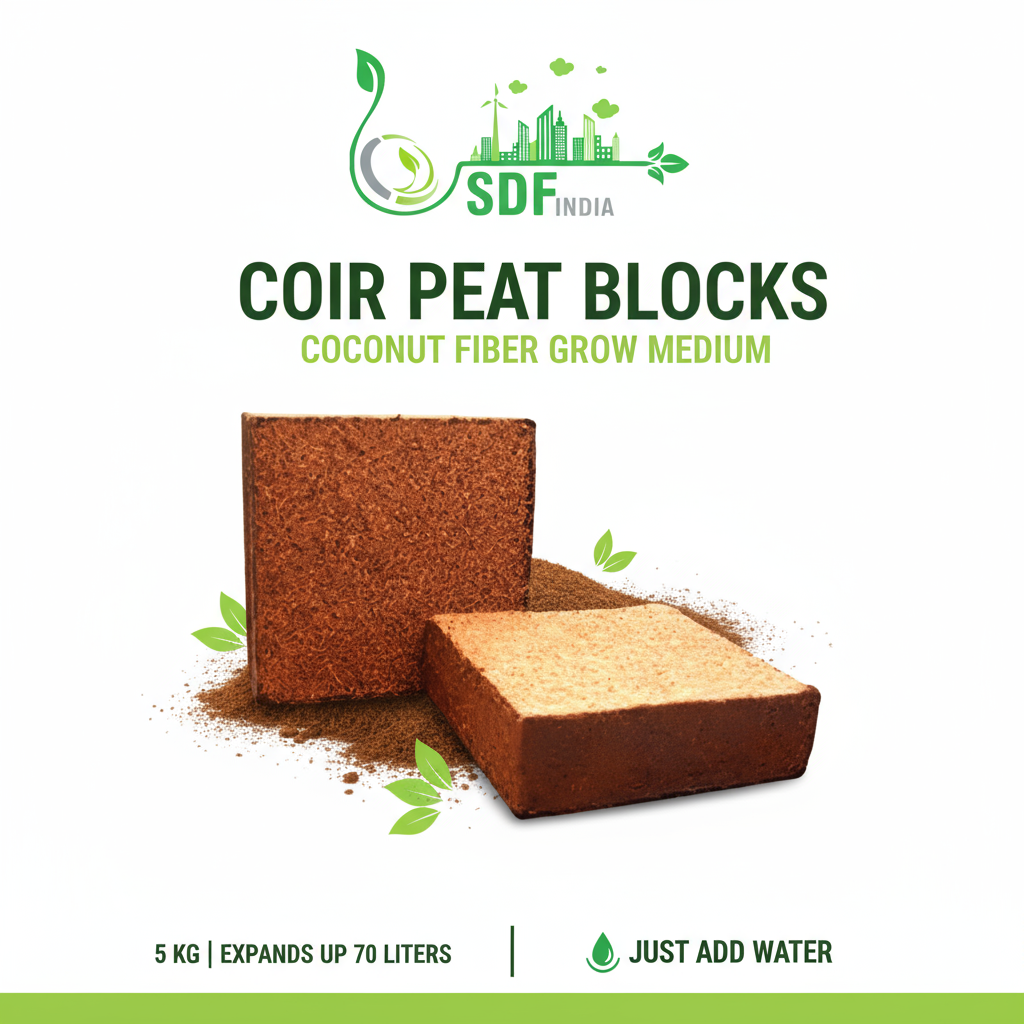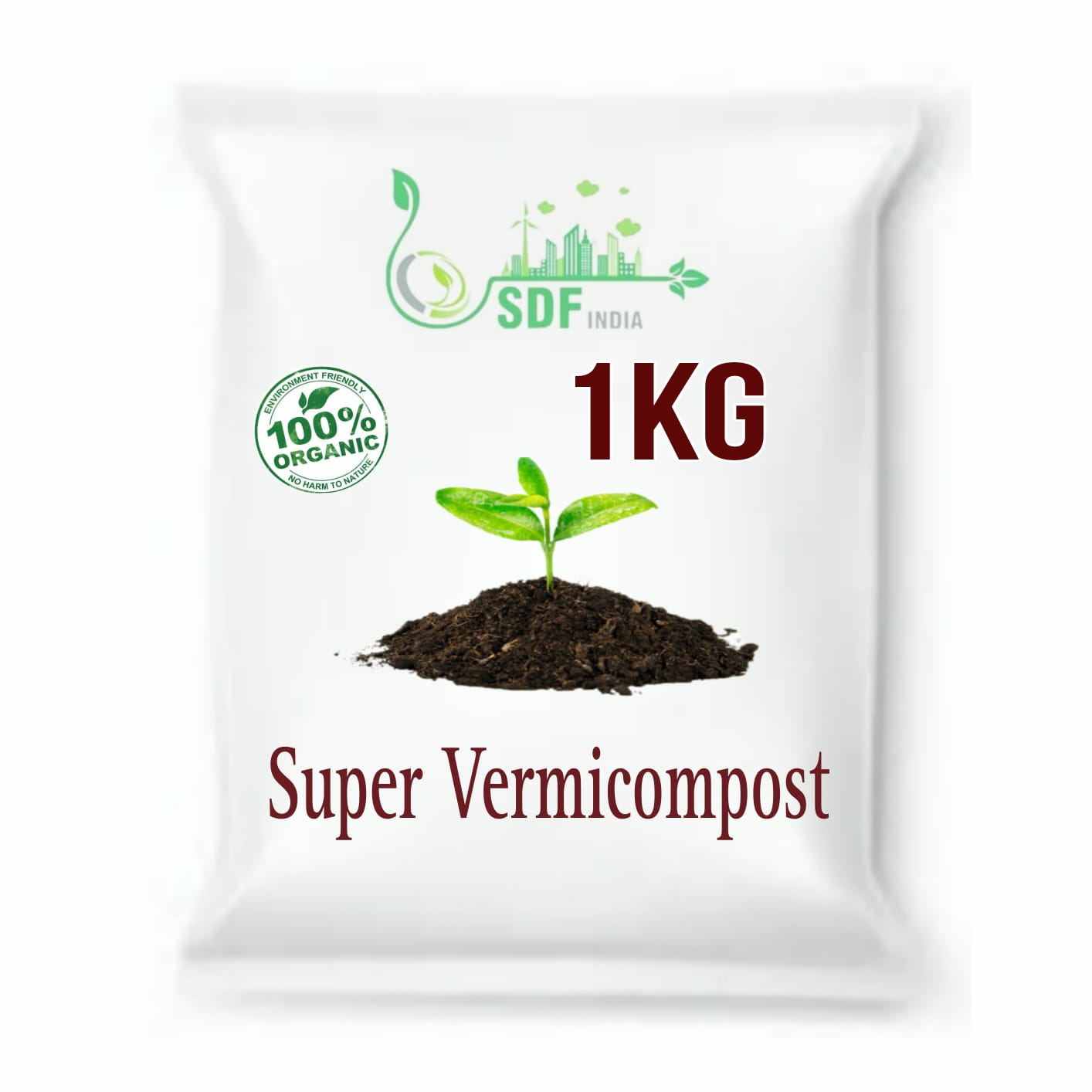Vermicompost (vermi-compost) is the product of the decomposition process using various species of worms, usually red wigglers, white worms, and other earthworms, to create a mixture of decomposing vegetable or food waste, bedding materials, and vermicast. This process is called vermicomposting, while the rearing of worms for this purpose is called vermiculture.Vermicompost contains water-soluble nutrients and is an excellent, nutrient-rich organic fertilizer and soil conditioner.It is used in gardening and sustainable, organic farming. BENEFIT :- 1. 1. Improves soil aeration
2. Enriches soil with micro-organisms (adding enzymes such as phosphatase and cellulase)
3. Microbial activity in worm castings is 10 to 20 times higher than in the soil and organic matter that the worm ingests
4. Attracts deep-burrowing earthworms already present in the soil
5. Improves water holding capacity
Vermicompost (vermi-compost) is the product of the decomposition process using various species of worms, usually red wigglers, white worms, and other earthworms, to create a mixture of decomposing vegetable or food waste, bedding materials, and vermicast. This process is called vermicomposting, while the rearing of worms for this purpose is called vermiculture.Vermicompost contains water-soluble nutrients and is an excellent, nutrient-rich organic fertilizer and soil conditioner.It is used in gardening and sustainable, organic farming. BENEFIT :- 1. 1. Improves soil aeration
2. Enriches soil with micro-organisms (adding enzymes such as phosphatase and cellulase)
3. Microbial activity in worm castings is 10 to 20 times higher than in the soil and organic matter that the worm ingests
4. Attracts deep-burrowing earthworms already present in the soil
5. Improves water holding capacity
Vermicompost (vermi-compost) is the product of the decomposition process using various species of worms, usually red wigglers, white worms, and other earthworms, to create a mixture of decomposing vegetable or food waste, bedding materials, and vermicast. This process is called vermicomposting, while the rearing of worms for this purpose is called vermiculture.Vermicompost contains water-soluble nutrients and is an excellent, nutrient-rich organic fertilizer and soil conditioner.It is used in gardening and sustainable, organic farming. BENEFIT :- 1. 1. Improves soil aeration
2. Enriches soil with micro-organisms (adding enzymes such as phosphatase and cellulase)
3. Microbial activity in worm castings is 10 to 20 times higher than in the soil and organic matter that the worm ingests
4. Attracts deep-burrowing earthworms already present in the soil
5. Improves water holding capacity
Vermicompost (vermi-compost) is the product of the decomposition process using various species of worms, usually red wigglers, white worms, and other earthworms, to create a mixture of decomposing vegetable or food waste, bedding materials, and vermicast. This process is called vermicomposting, while the rearing of worms for this purpose is called vermiculture.Vermicompost contains water-soluble nutrients and is an excellent, nutrient-rich organic fertilizer and soil conditioner.It is used in gardening and sustainable, organic farming. BENEFIT :- 1. 1. Improves soil aeration
2. Enriches soil with micro-organisms (adding enzymes such as phosphatase and cellulase)
3. Microbial activity in worm castings is 10 to 20 times higher than in the soil and organic matter that the worm ingests
4. Attracts deep-burrowing earthworms already present in the soil
5. Improves water holding capacity
Vermicompost (vermi-compost) is the product of the decomposition process using various species of worms, usually red wigglers, white worms, and other earthworms, to create a mixture of decomposing vegetable or food waste, bedding materials, and vermicast. This process is called vermicomposting, while the rearing of worms for this purpose is called vermiculture.Vermicompost contains water-soluble nutrients and is an excellent, nutrient-rich organic fertilizer and soil conditioner.It is used in gardening and sustainable, organic farming. BENEFIT :- 1. 1. Improves soil aeration
2. Enriches soil with micro-organisms (adding enzymes such as phosphatase and cellulase)
3. Microbial activity in worm castings is 10 to 20 times higher than in the soil and organic matter that the worm ingests
4. Attracts deep-burrowing earthworms already present in the soil
5. Improves water holding capacity


